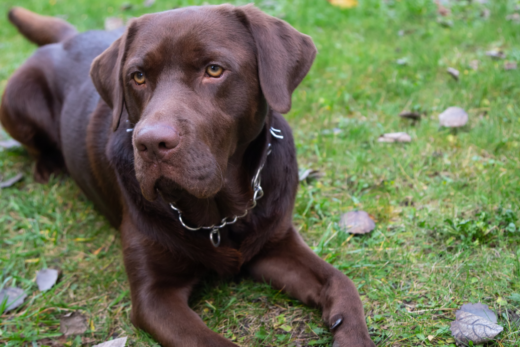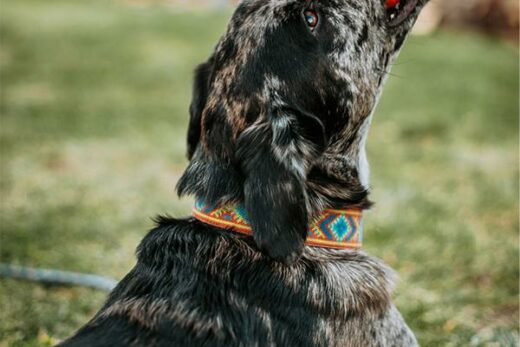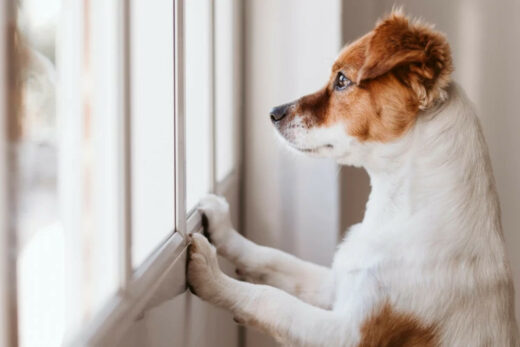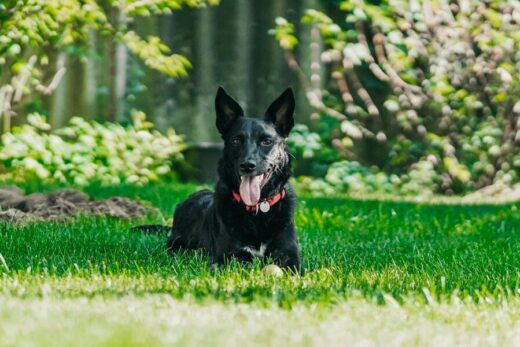If you ride or take care of horses, you’re probably all too familiar with anxiety in horses—whether it’s prompted by a backfiring truck up the road, a rustling plastic bag in the bushes, or a sprightly squirrel scuttling across the trail.
You’ll always want to take care of your pet, whether you want to bake cat birthday treats for your kitten’s special day, learn how to brush a dog, or in this case, help treat anxiety in horses. And although you might be helpless when it comes to treating an animal, there are a few things you can actually do to help with your horse’s anxiety for a smooth time together.
Treating anxiety in horses can sometimes feel like a wild goose chase, with any number of reasons leading to the nervousness of your four-legged friend, from external triggers to physical discomfort. Regardless of the cause of your horse’s nervousness, there are several strategies to help reduce their unease.
In this guide, you’ll learn how to observe nervousness in horses and find ways to reduce their jitters so that they can spend their days at pasture happy and healthy.
Common Signs of Nervousness in Horses
Wondering whether your riding companion is experiencing unease? It’s important to look out for the telltale signs. Horses are intelligent creatures, and their habits are often formed by a product of their schedules, environment, or handler.
If any of your horse’s behavior problems persist, talk to your veterinarian to make sure their apprehension isn’t a product of a more serious condition. To help determine whether your horse is experiencing any form of stress, keep an eye out for these signs:1
- Weaving or Stall Walking – According to the Merck Veterinary Manual, stall walking or weaving is a common horse behavior that’s compulsive and repetitive. Essentially, your horse will start to walk in circles or weave side to side for hours on end. 2These behaviors are often a sign of stress.
- Shaking or Trembling – If you are tending to your horse and notice any shaking or trembling, it could be a sign of nervousness. This is often seen as twitching skin that appears across their body.
- Rolled Eyes – Your horse isn’t giving you attitude (well, maybe it is). Rather, when you see the whites of your horse’s eyes it’s because the horse is scared. Look to see if they are exhibiting any additional trembling or rigid posture—your horse might be scared by something in its environment.
- Backing Away – Horses, like most animals, will look to get away from whatever is scaring them as quickly as possible. If your horse seems to be backing away and into a corner, it’s likely something has spooked it or they are remembering a time where something frightened them.
- Rearing – A horse that rears on its hind legs and prepares to strike may be experiencing extra stress. Oftentimes, aggression is a manifestation of apprehension, fear, or nervousness, typically due to environmental factors such as an unfavorable stranger or an intruding dog. Rearing is typically a horse’s attempt to escape a distressing situation.
- Bolting – When a horse is startled—like many prey herd animals—they instinctively attempt to run to get far away from the danger. Because bolting is driven by panic, it can result in injury if your horse is overwhelmed or unaware of its surroundings.
Causes of Horse Nervousness
The first step in helping your horse work through its panic is to identify the cause of its concern. This can sometimes be harder than you might expect—horses often can hold onto previous experiences and negative emotions, causing them to carry their uncertainty about a situation forward.
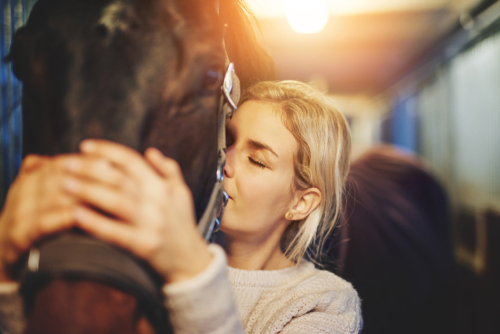
To determine how or why your horse might be getting nervous, consider the following seven factors that may be contributing to their distress:3
- Objects – Horses are naturally skittish when it comes to new objects or materials that they might not understand. Look out for any objects your horse might consider out of the ordinary like tractors, cars, garbage cans, bags, farm equipment, or even strange rocks.
- Places – Horses are herd animals, so they can often find boredom or fear in being alone and separated from other horses. If your horse struggles to listen to commands without another horse present (buddy-sour) or shows discomfort from leaving their stall or barn (barn-sour), your horse is probably nervous about being away from their home.
- Sounds – It’s always important to remember that horses are prey animals—they are constantly on alert. Skittish horses are likely to be afraid by surprising noises like a car-backfiring, loud banging, or even hissing sounds that might remind them of a snake.
- Clipping, Grooming, and Handling – Some horses get nervous or don’t like the various sensations needed for their upkeep. They might not like the way the clippers sound or feel. Some don’t like getting their shots, while others don’t like being shod. Make note of signs of nervousness when you’re primping your pony.
- Environmental Changes – Like any pet, moving location can be a cause of nervousness. During travel, a horse can be nervous about the new move, either from the trailer or to a new environment. Horses can also be affected by changes to or around their stall, like objects being moved, or new jumps or landscape being added to their corral.
- Work, Riding, and Training – If you’ve worked with horses long enough, you’re probably familiar with that one horse who always prefers a specific rider. Some horses may react negatively to strangers or riders they’re unfamiliar with. This can often lead to performance anxiety and confusion about certain commands, which can lead to more discomfort or panic.

